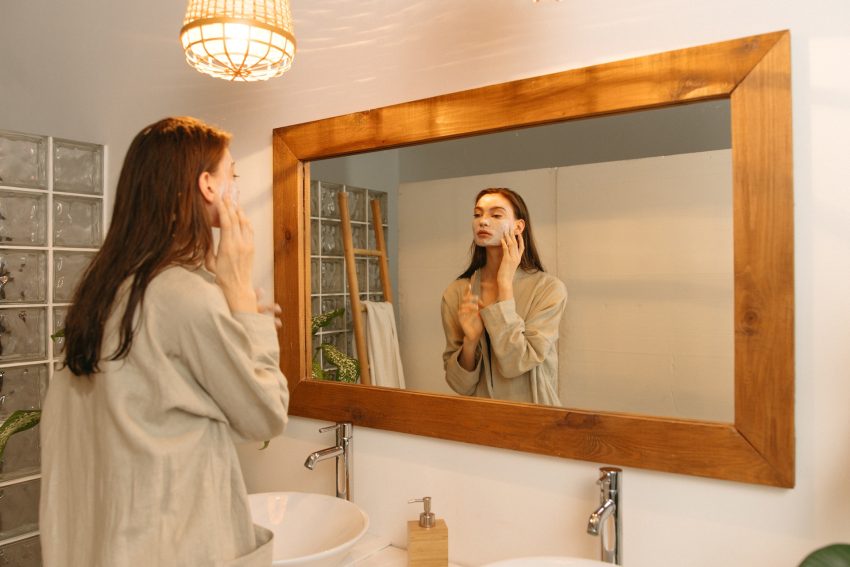Anxiety affects more than 18% of American adults every year. Treatment options for anxiety disorders have broadened to include both conventional medicine and holistic approaches.
Anxiety, depression, and even more painful conditions may respond favorably to several herbal medications. This article will look at some of the most popular, scientifically-proven herbs for anxiety and additional treatment options.
Realities Must Be Taken Into Account
Kava
At first glance, kava looked promising for anxiety therapy; however, reports of significant liver damage, even with short-term use, prompted the Food and Drug Administration to publish warnings against dietary supplements containing kava. Although the veracity of the initial allegations of liver damage has been called into doubt, anybody thinking about using kava-containing products should do so with great caution and see a doctor first.
Striking Blossom
Several small clinical trials suggest that passion flowers may be an effective treatment for anxiety. When the passion flower is combined with other herbs in commercial products, it might not be easy to distinguish between individual plants. The passion flower is generally considered safe when handled properly. But research has shown that it can lead to drowsiness, dizziness, and confusion.
Valerian
Clinical investigations of valerian showed that it reduced stress and anxiety in those who took it. Researchers in other studies found no benefit. Some potential side effects are headaches, dizziness, and drowsiness. Due to the lack of long-term safety testing, valerian should not be occupied for more than a few weeks, even though it is widely considered safe at prescribed dosages.
Chamomile
Short-term use of chamomile is safe and may reduce anxiety symptoms, although there is limited evidence to support this. On the other hand, chamomile may increase bleeding when used with blood-thinning drugs. An adverse reaction to chamomile use has been reported in those who are allergic to the plant family to which chamomile belongs. Marigolds, daisies, chrysanthemums, and ragweed belong to the same family.
Lavender
Lavender ingestion has been linked to gastrointestinal distress and headaches. Furthermore, it may cause hypotension, increase appetite, and amplify the sedative effects of other medications or supplements. Preliminary and scant studies have suggested lavender aromatherapy, or supplementation, treats anxiety.
Lemon Balm Citrus
Anxiety feelings like jitters and exhilaration may be alleviated by lemon balm, according to early research. Lemon balm can cause nausea and stomach pain. However, it is generally well-tolerated and considered safe for short-term use.
Possibilities Outside of the Medical Field
Adjustments to one’s way of life can be helpful for many persons with anxiety, including those getting treatment. Here are some strategies you may take to maintain your blood pressure reduction in everyday life:
Improve Your Capacity to Unwind
Deep breathing exercises, meditation, and other relaxation methods have been shown to reduce anxiety and its effects.
Get Enough Sleep Every Night
Since sleep deprivation is often a trigger for anxiety, getting the recommended amount of sleep each night is vital.
30-Minute Workouts Once a day
Several helpful hormones are released during exercise, which has been shown to aid in reducing anxiety and depressive symptoms in those who regularly exercise.
Eat a balanced, nutritious diet
Fruits, vegetables, full grains, and strong fats are among the foods that are high in nutrients that aid brain function.
Never partake in substance abuse, including nicotine, alcohol, or drugs.
While alcohol, cigarettes, and other drugs may seem like a good impression at the time, they often end up doing more harm than decent in the long run.
Treatment Options for Anxiety Disorders
Traditional therapies for anxiety often consist of either psychotherapy, medicine, or a combination of the two.
Psychotherapy
Cognitive behavioral treatment is one of the most real methods for treating anxiety disorders. People with these illnesses can learn to recognize the thoughts, feelings, and actions accompanying them via cognitive behavioral therapy (CBT).
Other forms of analysis, such as psychodynamic therapies, may help treat mood disorders, including anxiety and depression.
Medication
Medication, especially when combined with therapy, is a highly effective treatment for patients who suffer from anxiety disorders. Long-term anxiety treatment typically involves the use of antidepressants.
Anxiety can be treated with benzodiazepines and other quickly-acting medications. However, they are not generally suggested for extended periods due to the risk associated with drug use.
Cautions
The Food and Drug Administration (FDA) does not review, approve, or maintain tabs on dietary supplements once they hit store shelves.
It is essential to research the product and the company selling it if you want to buy herbal supplements for anxiety.
When you are ready to take action, talk to your doctor. As a group, you’ll be able to keep an eye out for any problems or unintended consequences.
Identifying When Medical Attention Is Necessary
Dealing with mental health concerns such as depression, anxiety, or stress may be started at any time.
If you find that your nervousness is interfering with your daily life, you should see a doctor. They will discuss your options for therapy and may recommend seeing a psychologist or psychiatrist.
Summary
Herbal medicine has a long history of usage throughout human history. Several herbs have shown promise in clinical trials for alleviating anxiety symptoms.
Like conventional pharmaceuticals, several herbal remedies might have undesirable side effects. Herbal remedies may sometimes need more time to kick development. People need to consider these factors while weighing the benefits and drawbacks of a potential treatment.
Some herbal remedies and pharmaceuticals can have fatal interactions with one another. A person receiving therapy should see their physician before using any herbal remedies.


prednisolone 1
buy clomid in australia
Taking synthroid 1.25 mg has been a waste of time and money for me.
buy viagra 100mg
500 mg gabapentin
order valtrex online
buy zyban
stromectol south africa
2400 mg gabapentin
gabapentin mexico
ivermectin otc
buy vermox tablets
generic zoloft for sale
25mg prednisolone
can i buy azithromycin online usa
propecia 5mg uk
stromectol buy
vermox over the counter uk
We always follow your beautiful content I look forward to the continuation.
retino cream price
buy viagra wholesale
propecia tablets buy online india
pharmacy discount card
silkroad online pharmacy
proscar for bph
suprax 200 mg tablets
vermox tab 100 mg
azithromycin pills
best canadian pharmacy
chloramphenicol tablets
fildena online india
zovirax cream cvs
minocin generic
cleocin 2 cream
buy online pharmacy uk
canadian pharmacy ed medications
combivent brand name
malegra dxt 130 mg
rx pharmacy online 24
nitrofurantoin generic price
avodart 0.5 mg generic
cheap advair online
malegra 120
cheap generic noroxin
I appreciate you sharing this blog.Really looking forward to read more. Really Great.
safe online pharmacies in canada
biaxin
acyclovir 5 cream 2g
cheap finasteride australia
best online pharmacy india
propecia prescription online
cost of lyrica medication
pharmacy discount coupons
buy avodart online
Very well presented. Every quote was awesome and thanks for sharing the content. Keep sharing and keep motivating others.
Very nice blog post. I definitely love this site. Stick with it!